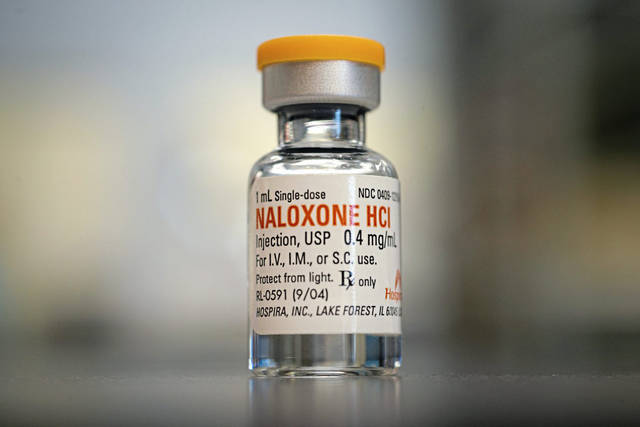According to statistics from Allegheny and Westmoreland counties, the number of fatalities resulting from drug overdoses is expected to have fallen for the second year in a row.
That is undeniably good news. It means fewer people are grieving the loss of loved ones.
What it does not mean is that the opioid crisis is over, or that addiction to heroin and fentanyl and prescription drugs has collapsed.
It doesn’t mean fewer people are overdosing. They just aren’t dying.
The difference between the steadily escalating death counts of previous years and the tapering down that began in 2018 is the increasing use and availability of naloxone. The life-saving narcotic blocker counteracts overdose and its availability has been expanding.
And addicts aren’t the only ones it is saving.
While narcotic manufacturers are facing massive lawsuits over their part in the nationwide opioid crisis, complete with huge settlements, some have found new life via providing the antidote to the problem they created.
In 2018, the U.S. Department of Health and Human Services recommended co-prescribing naloxone with opioids. That’s a smart safety move, as has been putting the drug in the hands of first responders and making it available in Pennsylvania pharmacies via standing orders.
But available is not free. Someone is still picking up the tab, meaning someone is making a profit.
In April, Teva Pharmaceuticals received Food and Drug Administration approval for a generic nasal spray form of naloxone.
Teva owns Cephalon, a subsidiary that manufactures drugs including two kinds of fentanyl, the potent synthetic narcotic that has become the new Big Bad Wolf in an already grim tale of addiction and death. Teva is one of the companies in a lawsuit that includes several states, including Pennsylvania.
Another application to the FDA was submitted in July by INSYS Therapeutics, just a month after the company admitted illegal conduct with its own narcotic, Subsys, a fentanyl spray.
More ways to combat overdose are good. The Centers for Disease Control and Prevention says there is still not enough naloxone available. But there is something sick and cancerous about allowing the companies behind the opioid addiction to resurrect themselves from their own crisis via the cure.
Murderers have been prevented from profiting with books or movie rights via state-enacted Son of Sam laws — named after serial killer David Berkowitz. The same kind of forfeiture should apply to this kind of pharmaceutical profiteering.








